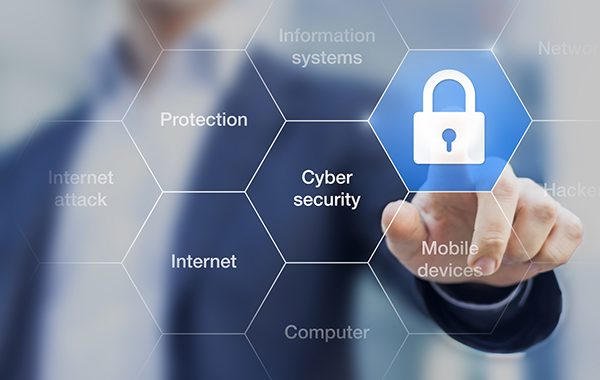In the digital age, small businesses must navigate a landscape filled with cyber threats. While large corporations have extensive resources to mitigate cyber risks, small businesses often operate with more limited budgets and IT expertise. However, cybersecurity is not a luxury—it’s a necessity.
Here’s a quick guide to the most crucial steps small businesses should take to protect their operations and why they matter.
Computer Security: Fortify the Front Lines
1. Install and Update Antivirus Software: Antivirus software is the first line of defense against malware. It detects, prevents, and removes malicious programs. Ensure it’s up to date to combat the latest threats.
2. Use Firewalls: Firewalls act as barriers between your computers and potential threats. They monitor incoming and outgoing traffic and block suspicious activities.
Why It’s Important: Computers are the workhorses of your business. Protecting them from malware and breaches keeps your operations running smoothly and prevents data theft.

Network Security: Guard Your Digital Perimeter
1. Secure Wi-Fi Networks: Use WPA3 encryption for your Wi-Fi, hide the network SSID, and change default passwords to complex, unique alternatives.
2. VPN for Remote Access: A Virtual Private Network (VPN) encrypts the connection from remote locations, shielding your data from eavesdroppers.
3. Monitor Network Traffic: Regularly check for unusual activities that could indicate a breach, such as unexpected data flows or unauthorized access attempts.
Why It’s Important: Your network is the gateway to your business’s digital assets. Securing it ensures that confidential data doesn’t fall into the wrong hands.
Cloud Security: Protect Your Data in the Cloud
1. Strong Authentication Measures: Implement multi-factor authentication (MFA) to add an extra layer of security beyond just passwords.
2. Data Encryption: Encrypt sensitive data both at rest and in transit to prevent unauthorized access.
3. Access Controls: Limit access to cloud resources based on user roles to ensure that employees can only access the data necessary for their jobs.
Why It’s Important: With the increasing use of cloud services, it’s vital to safeguard the data stored off-premises as rigorously as on-site data.

Human Security: Your Team as a Defense Asset
1. Cybersecurity Training: Regularly train employees on cybersecurity best practices, such as identifying phishing attempts and proper password management.
2. Clear Security Policies: Establish and enforce policies covering data handling, acceptable use of IT resources, and incident reporting.
3. Encourage a Security Mindset: Create a culture where security is everyone’s responsibility. Encourage employees to report suspicious activities without fear of reprimand.
Why It’s Important: Humans can be the weakest link in security. Empowering your staff with knowledge turns them into a strong line of defense.
Physical Security: The Often Forgotten Element
1. Secure Physical Access: Limit physical access to crucial IT infrastructure to authorized personnel only.
2. Protection Against Environmental Hazards: Ensure your IT equipment is protected from threats like fires, floods, and power surges.
3. Device Management: Keep track of all hardware, require authorization before connecting new devices, and securely dispose of old equipment.
Why It’s Important: Physical breaches can be as devastating as digital ones. Protecting your hardware is a critical aspect of cybersecurity.
Conclusion: Cybersecurity is a Continuous Process
Cybersecurity is not a one-time setup but an ongoing process. As technology evolves, so do the threats. Small businesses must stay vigilant, regularly reviewing and updating their security practices. By focusing on these key areas—computer, network, cloud, human, and physical security—small businesses can significantly reduce their risk and protect their future. Remember, in cybersecurity, an ounce of prevention is worth a pound of cure.
If your business needs a hand, reach out. We’re happy to help.

